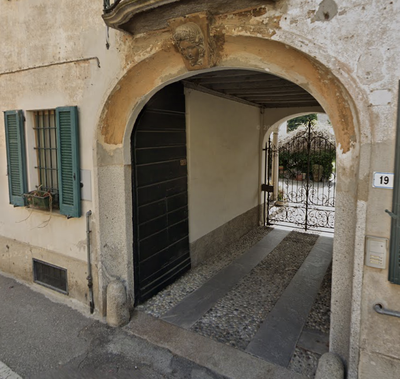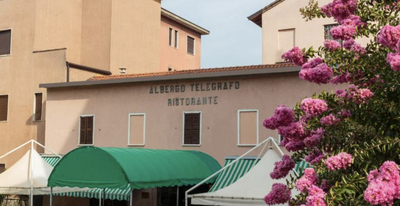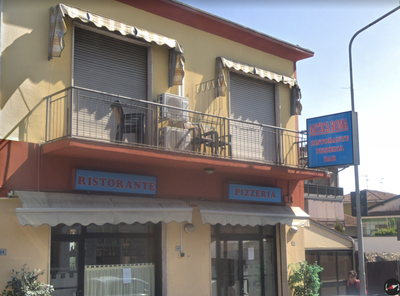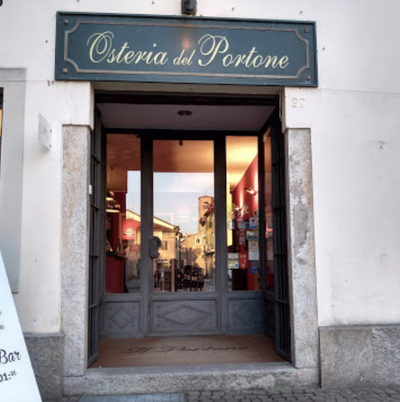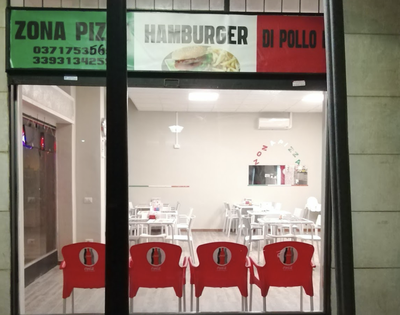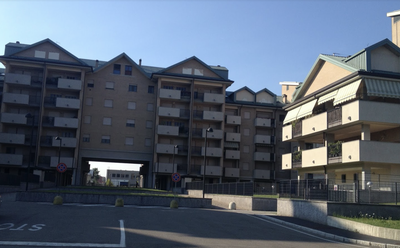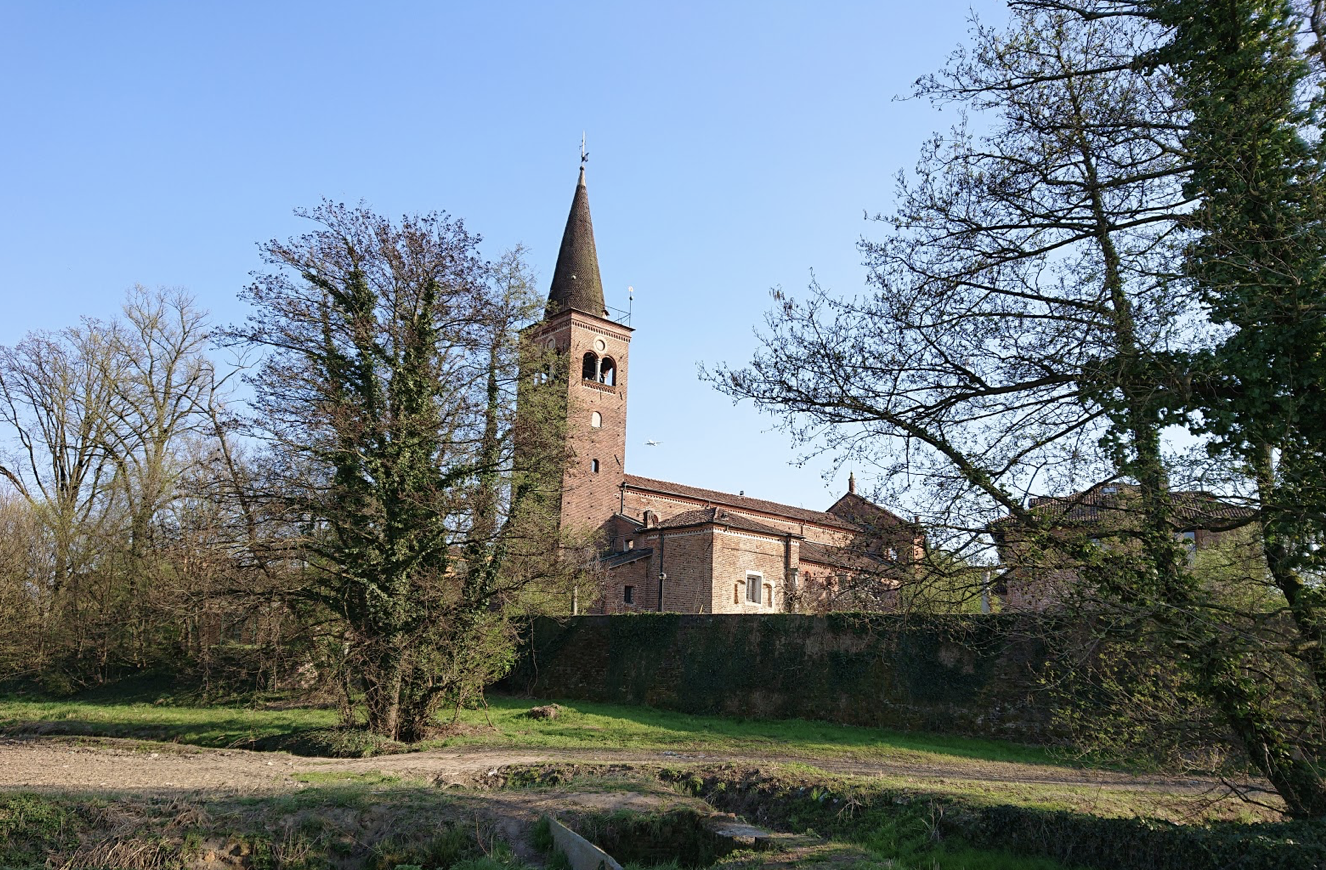
15. Melagnano to Sant'Angelo Lodigiano
10 points of interest
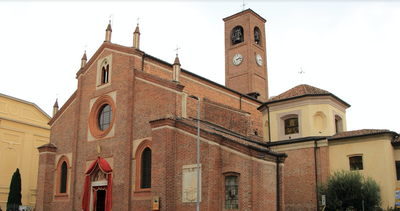
Basilica San Giovanni Battista CulturalMinor Basilica of St. John the Baptist
Consecrated in 1506, it was enriched with a choir and a chapel dedicated to Saint Anthony Abbot in 1581 thanks to Saint Charles Borromeo. In 1982, during restoration work, a 15th-century fresco depicting Sant'Ambrogio was discovered.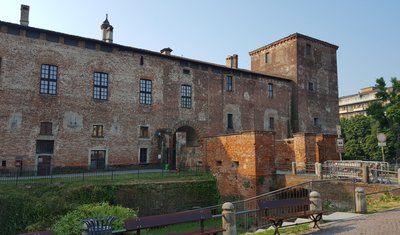
Castello Medici - Amis St Colomban HistoricalMedici Castle
The first traces of a castle date back to 1243. Initially in the form of a fortress charged with defending Milan, the castle became around 1400 a residence for large Italian families like the Visconti. It was then sold to the Medicis in 1532, who kept it until 1981. Today owned by the province of Milan, the castle was renovated in 1998.
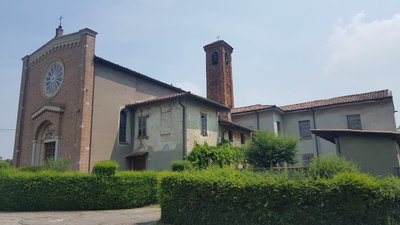
Chiesa Santa Maria della Neve - Amis St Colomban CulturalChurch of Santa Maria della Neve
A small country church dating back to the 10th century but renovated over the centuries.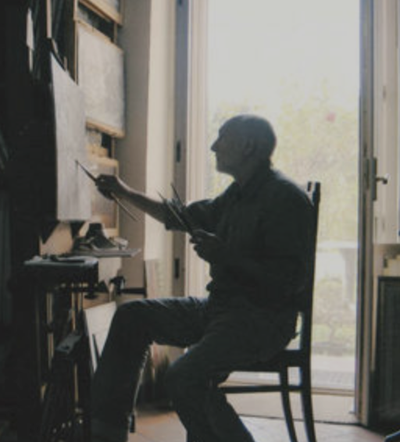 Cultural
CulturalTeodoro Cotugno
Teodoro Cotugno is a painter and artist from Lombardy who lives in the village.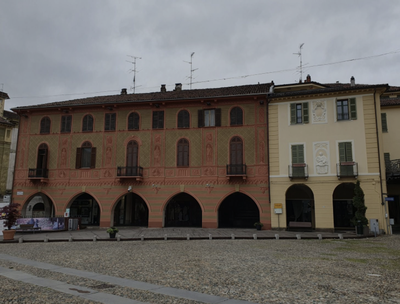 Historical
HistoricalVistarini Castle
The Vistarini Castle is an ancient Roman fort that became a stately home. Today, in its tower, it houses the municipal library, with frescoes from the 17th century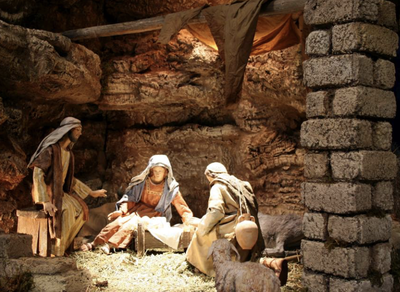 Tourist
TouristCascina Vistarina
La Cascina Vistarina ospita un museo del lettino, con una collezione privata di 300 oggetti provenienti da tutto il mondo.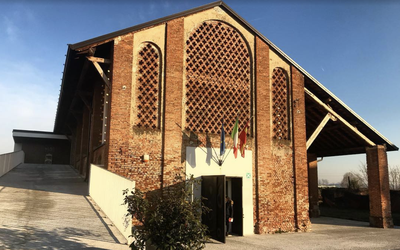
Museo Laus Pompeia HistoricalLaus Pompeia Museum
Laus Pompeia is a testimony to how archaeology can restore a history that has been forgotten for thousands of years and erased in its foundations. The "Laus Pompeia" Museum tells the story of the rediscovery of an important Roman city, completely destroyed in the Middle Ages by a fierce war, abandoned, rebuilt and transformed thanks to the vitality and perseverance of its inhabitants.
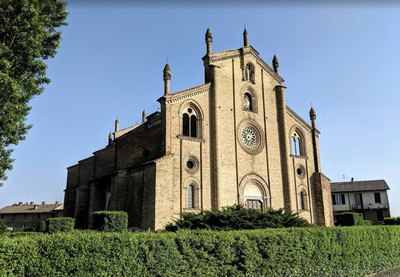
Basilica di San Bassiano CulturalBasilica of San Bassiano
The basilica built in 1320 and 1323 retains its characteristics despite the renovations of the last two centuries. A fine example of the architecture of the churches of Lombardy.
Learn more about it.
Possibility to have a stamp on the credential (pilgrim passport)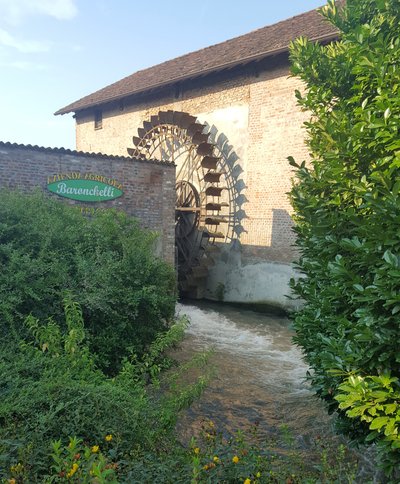
Mulino - Amis St Colomban TouristCa'dell'Acqua Mill
One of the many mills in the region that turn with the water from the irrigation canals of the Muzza. These mills were all born at the same time and so were their stops.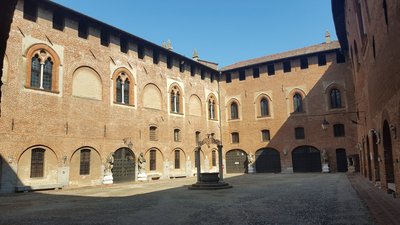
Castello Bolognini - Amis St Colomban HistoricalBolognini Castle
Built in the 13th century, on the Lambro river in a strategic position to control river traffic to Milan, Sant'Angelo Castle was built on Lombard military architecture, a quadrilateral and corner towers. It belonged successively to Visconti, Sforza and Bolognini until 1933. It now houses a museum.
Description
- Turn left into Via Giardino until its end where it turns right. Take the first road on the left (Via dei Cedri) which leads to a footpath under the railway tracks. Follow the cycle path that crosses the Cerro al Lambro housing estate and then the Lambro river on a footbridge.
- After the bridge, turn left to find the road that passes underneath and follows the left bank of the Lambro (signposted Cammino di San Colombano). Enter the village of San Zenone al Lambro along Via Isola, then cross it by the first street on the left (Via Giuseppe Garibaldi), Via Milano on the right and the footpath of Via Fermi on the left. Turn right onto Via Cassia Dominiani and then left following the signs onto the SP204 which leads to the village of Santa Maria in Prato.
- At the crossroads after the village, continue to the right on the SP204 which then crosses the SP115 (roundabout). Continue on the SP140, which follows the changes in direction of the nearby canals.
- Leave the SP140 before a sharp bend and take a small road to the right (signposted) which leads to the village of Domodossala.
- On leaving the village, turn right and follow the signs that take you across the Lambro and the village of Vidardo before crossing the Lambro again to reach your destination on the main road.
Diversion via Lodi Vecchio and the Basilica of San Bassiano.
The only access to the village is an underground passage of about 200 metres which, although recently built, is unfortunately forbidden to pedestrians (but not to bicycles).
To reach Lodi Vecchio it is therefore necessary to take a bus from Salcrano: lines 3 and 8 from the stop in via Cadorna to the stop in via San Rocco in Lodi Vecchio.
Once you get off at the Via San Rocco stop, turn left and then take the first exit at the roundabout and follow Via XXV Aprile for 400 metres. At the crossroads, turn left into Via Santi Naborre e Felice and walk for about 550 metres. At the fork in the road, keep to the right and continue until you reach the Abbey of San Bassiano.
It is possible to return to Salerano by bus, but it is advisable to go to Vidardo, again by bus, to find the way back.
This deviation saves about 8 km.
- Departure : Basilica Minore San Giovanni Battista, Piazza Risorgimento, 3, 20077 Melegnano
- Arrival : Basilica San Antonio Abate, Via Umberto I°, 9, 26866 Sant'Angelo Lodigiano
- Towns crossed : Lombardia
Altimetric profile
Recommandations
Important information :
The crossing of the Po River by boat must be booked 24 hours in advance by telephone with Danilo Parisi: 0039 (0) 523 771 607 or 0039 (0) 318 768 456
Transport
Sant'Angelo Lodigiano :
Extra-urban line,
line 61 with connections to Milan and
Melegnano,
tel. 0382-46.92.93,
lodiextraurbano.lineservizi.it.
Star,
line E61 with connections to Milan and Melegnano,
tel. 0371-30.263,
www.starlodi.it.
Lodi Vecchio:
Extra-urban line,
bus from Salerano, lines 3 and 8,
tel. 0382-46.92.93, lodiextraurbano.lineservizi.it (online ticket purchase).
Viverdo :
Extra-urban line,
bus from Lodi Vecchio, line 3,
tel. 0382-46.92.93,
lodiextraurbano.lineservizi.it (online ticket purchase).
Report a problem or an error
If you have found an error on this page or if you have noticed any problems during your hike, please report them to us here:
Close by8
- Accommodation


